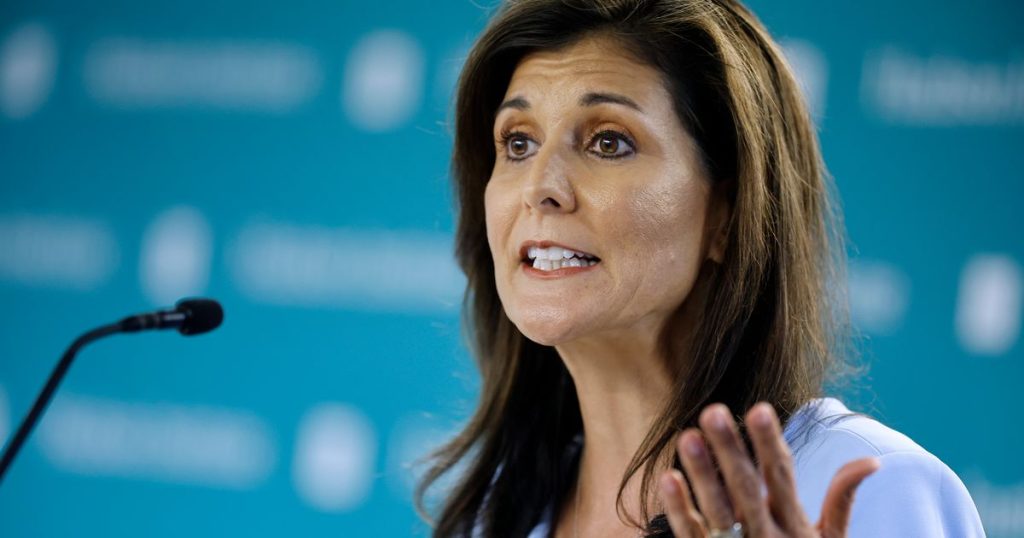Nikki Haley, a former GOP presidential candidate who once criticized Donald Trump, has now offered lackluster support for him as the Republican nominee for president. In an interview with CBS News, Haley acknowledged Trump’s nomination but expressed reservations about his style, approach, and communication. Despite previously stating that she could do a better job than Trump, Haley endorsed him after suspending her own campaign. She also mentioned that she has offered to help Trump’s campaign if needed, indicating that she is willing to support him despite her earlier criticisms.
Haley’s tepid support for Trump comes in the context of other prominent Republicans, such as former Vice President Dick Cheney, announcing their support for Democratic nominee Kamala Harris. Haley’s endorsement of Trump is notable given her previous comments about him being “unhinged” and “not qualified” to be president. However, she seems to have changed her tune and is now willing to assist Trump’s campaign if necessary. This shift in Haley’s stance illustrates the complex dynamics within the Republican Party as it grapples with supporting Trump despite internal disagreements.
The full interview with Haley is set to air on CBS News, where she elaborates on her views of Trump’s candidacy. Haley’s decision to support Trump despite her earlier criticisms raises questions about the motivations behind her endorsement and how it aligns with her previous statements about him. As a former United Nations ambassador and governor of South Carolina, Haley’s opinions on Trump carry weight within the Republican Party and could influence the support he receives from other prominent figures.
The endorsement of Trump by Haley is contrasted with other Republicans who have chosen to back Harris, highlighting the divisions within the party over the upcoming election. Former GOP vice-presidential candidate Sarah Palin is the only other member of a Republican ticket to publicly support Trump. The choices made by prominent Republicans in this election reflect the broader political landscape and the challenges faced by the GOP in deciding how to approach the Trump administration.
Haley’s offer to assist Trump’s campaign if needed indicates a willingness to put aside her previous criticisms and support the Republican nominee. Her decision to back Trump despite her reservations suggests a pragmatic approach to politics and a recognition of the importance of party unity in the upcoming election. Whether Haley’s endorsement will sway other Republicans to support Trump remains to be seen, but her position as a prominent party figure makes her opinions influential within GOP circles.
In the final analysis, Nikki Haley’s reluctant support for Donald Trump as the Republican nominee for president reflects the challenges facing the GOP as it navigates internal divisions over the upcoming election. Haley’s past criticisms of Trump, followed by her endorsement, exemplify the complexities of political alliances and the shifting loyalties within the party. The dynamics of the 2020 election are further complicated by prominent Republicans endorsing Democratic nominee Kamala Harris, creating a fractured landscape within the GOP as it grapples with how to approach the Trump administration.








